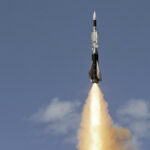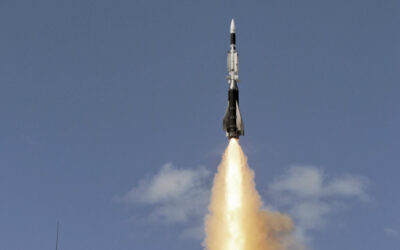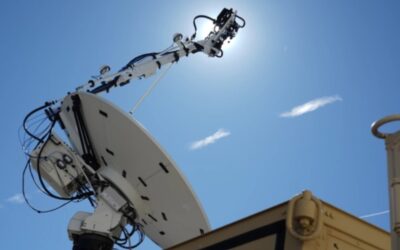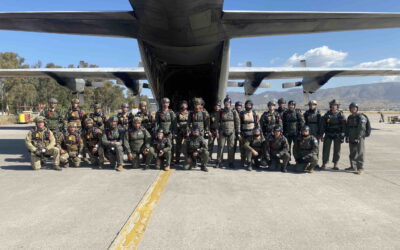Images from Russia’s strike in the heart of Odessa, which hit the so-called “Harry Potter Castle”, a former politician’s mansion now…
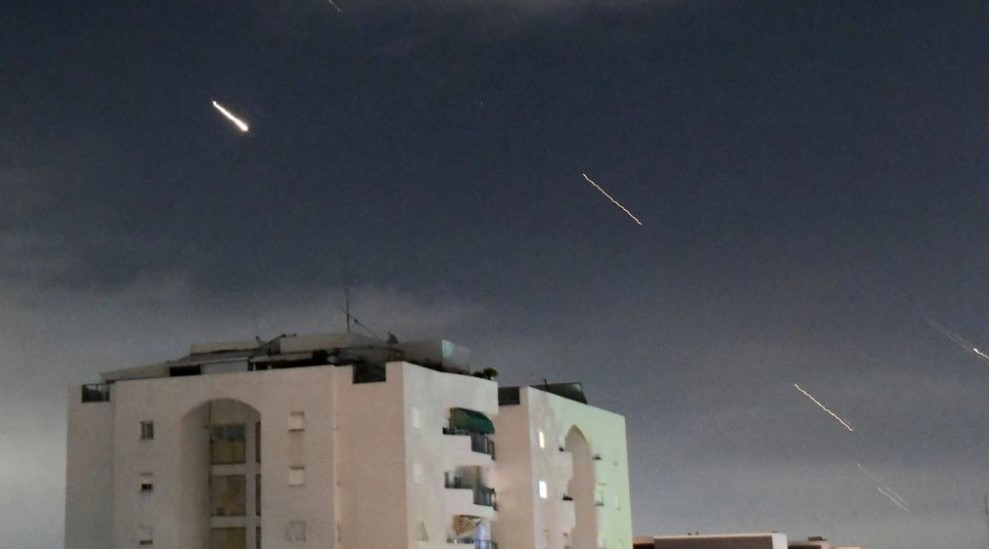
Israel’s response to Iran’s attack is thought to be a matter of time. Thus, the war council that held a meeting for more than six hours voted by the majority to retaliate.
Reports assume that the retaliation will take place within 24 to 72 hours despite the fact that the Americans have made it clear that they will not participate, while Israel is already preparing. However, an Israeli official who spoke to NBC News on the condition of anonymity said that Israel will respond to the Iranian attack, but no final decisions have been made on the extent or timing of the response.
On a practical level, this means that the risk of a flare-up in the region is likely with international consequences in terms of geopolitics, economy and immigration. Vice Admiral Daniel Haggari revealed in a press conference that plans for offensive and defensive action have been approved following last night’s attack by Iran.
Also read: I-Dome | The innovative, mobile version of Iron Dome
Israeli Defence Minister, Yoav Gallad, said that despite the prevention of the attack, the military campaign is not over and Israel must prepare for any scenario.
The United States has pledged to defend Israel, but will not be part of any response it undertakes. In fact, Netanyahu and the members of the war ministry were faced with the dilemma of whether there would be a response, given the US pressures for Israel not to respond, as there is the risk of a wider flare-up. However, Israel’s policy does not allow it to remain inactive as such inactivity will be seen as succumbing to pressure.
The diplomatic background is also intense with the involvement of all major powers such as Britain and Turkey. According to Turkish media, US CIA director William Burns asked the head of the National Intelligence Agency (MİT), İbrahim Kalin, to act as a mediator because of his good relations with Iran and Hamas.
This development takes on particular significance given that it is not clear whether Turkey has permitted the US to use its airspace to respond to the Iranian attack.
In another development, Foreign Minister Hakan Fidan also had a telephone conversation with Iran’s Foreign Minister, Hossein Amir Abdollahian. After communicating with Abdollahian, Hakan Fidan also had a telephone conversation with UK Foreign Secretary, David Cameron.
Also read: Arrow 3 | Flight test of Israeli missile completed successfully – VIDEO
Iran has fired more than 300 drones and missiles against Israel, according to the Israel Defence Forces (IDF).
Peter Lerner, an IDF spokesman, gave CNNi the latest estimate of the number of drones and missiles fired by Iran against Israel: 120 ballistic missiles, 30 cruise missiles, and 170 explosive-laden drones.
Of those, a small number reached Israel, military spokesman Vice Admiral Daniel Hagari said in a televised statement. About 99 percent of the incoming barrage was intercepted either outside Israeli airspace or over the country itself, Vice Admiral Hagari said.
However, the Vice Admiral admitted that a missile lightly hit the Nevatim air base in the Negev desert in southern Israel. The base is still operating, he stressed.
The shortest distance from Iran to Israel is about 1,000 kilometers through Iraq, Syria and Jordan. Iran’s Islamic Revolutionary Guard Corps said the ballistic missiles were launched almost an hour after the slower-moving drones, so they would have hit Israel around the same time.
Also, Iran warned Israel that its response will be much greater if Israel retaliates against Iran, Chief of Staff, Lt. Gen. Mohammad Bagheri, told state television. He also said they would attack US bases if the US joined any Israeli retaliation.
The Iran-backed Hezbollah group in Lebanon also said it fired two missiles at an Israeli military base in the occupied Golan Heights, a plateau Israel has annexed from Syria in a move not recognized by most of the international community.
Also read: Iran | Admits to supplying Russia with UAVs prior to Ukraine war
Which foreign powers helped Israel?
US President Joe Biden said that US Forces helped Israel shoot down almost all of the drones and missiles fired by Iran on Sunday. He said in a statement that the US had moved aircraft and warships to the area before the unprecedented attack.
UK Prime Minister, Rishi Sunak, confirmed that British RAF Typhoon jets also shot down a number of Iranian attack drones.
Jordan, which has a peace treaty with Israel, but has been sharply critical of the way it is waging its war against the Palestinian group Hamas in Gaza, has also intercepted flying objects that entered its airspace to ensure security of its citizens, Jordanian Cabinet’s statement mentioned.
France helped patrol the airspace, but it was unclear whether it shot down a drone or missile, the Israeli military said.
Also read: Iran | Demonstration of clone of US-made kamikaze drone
The Iranian airstrike cost Israel an estimated $1.35 billion, according to Israeli media reports. Former economic adviser to Israel’s Chief of Staff, General Ram Aminach, told the Yedioth Ahronoth newspaper that the cost of defence is estimated at around 4-5 billion shekels ($1.08-1.35 billion).
An Arrow missile used to intercept an Iranian ballistic missile costs $3.5 million, while the Magic Wand missile costs $1 million, plus aircraft involved in intercepting Iranian drones, the General added.
According to foreign reports, Iran launched dozens of Shaheed-type drones against Israel. These are low-cost yet deadly drones that have become known as the Kalashnikovs of Tehran.
These can carry up to 50 kg of explosives, while their range exceeds 2,000 km. The price of Shaheed-type drones ranges from 20,000 to 50,000 euros. Russia is already using these drones in the war in Ukraine.
Also read: Iran | Announcement for the development of new hypersonic weapon
READ MORE
France | Industries prioritize orders of anti-aircraft missiles
The Armed Forces Ministry of France has instructed industries involved in the production of Aster anti-aircraft and anti-ballistic…
Ecuador | Appeals to International Court of Justice denouncing Mexico
Ecuadorian police stormed the Mexican embassy hours after the Mexican government granted former Vice President…
Russia | Cluster bombs hit residential area in Odessa
Images from Russia’s strike in the heart of Odessa, which hit the so-called “Harry Potter Castle”, a former politician’s mansion now…
France | Industries prioritize orders of anti-aircraft missiles
The Armed Forces Ministry of France has instructed industries involved in the production of Aster anti-aircraft and anti-ballistic…
Ecuador | Appeals to International Court of Justice denouncing Mexico
Ecuadorian police stormed the Mexican embassy hours after the Mexican government granted former Vice President…
Remote Modular Terminal | The US Space Force’s new weapon system
The US Space Force has unveiled its new Remote Modular Terminal (RMT) weapon system. The system has completed its…
Latvia | Citizens are asked to turn basements into air raid shelters
Latvian authorities have called on citizens to turn their basements into air raid shelters, causing concern.
HNDGS | Greece – USA bilateral exercise “STOLEN CERBERUS XI” – Photos
From Monday 15 to Friday 26 April 2024, the bilateral exercise “STOLEN CERBERUS XI” took place under the coordination…









